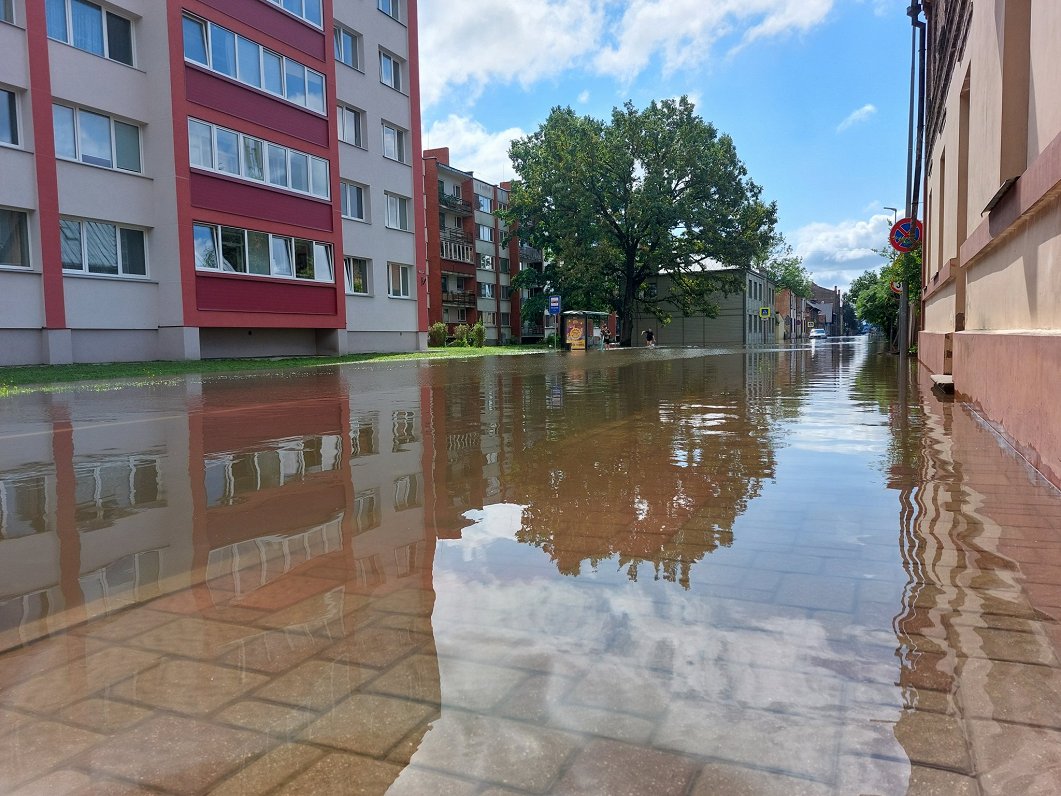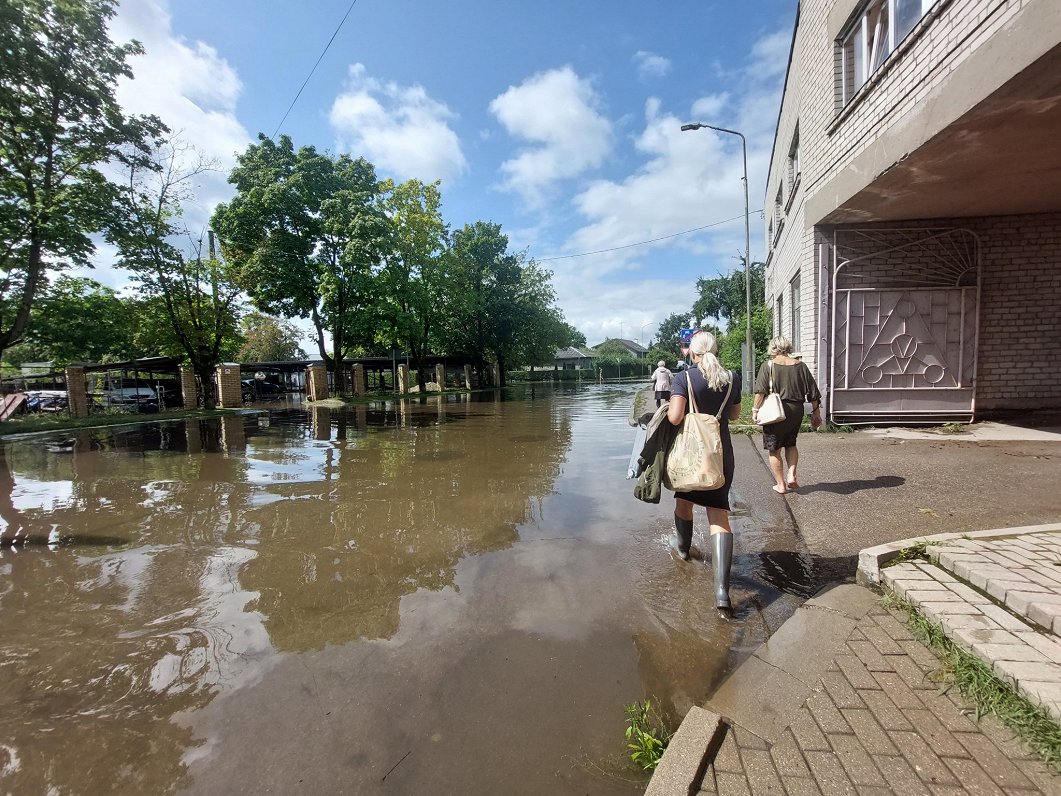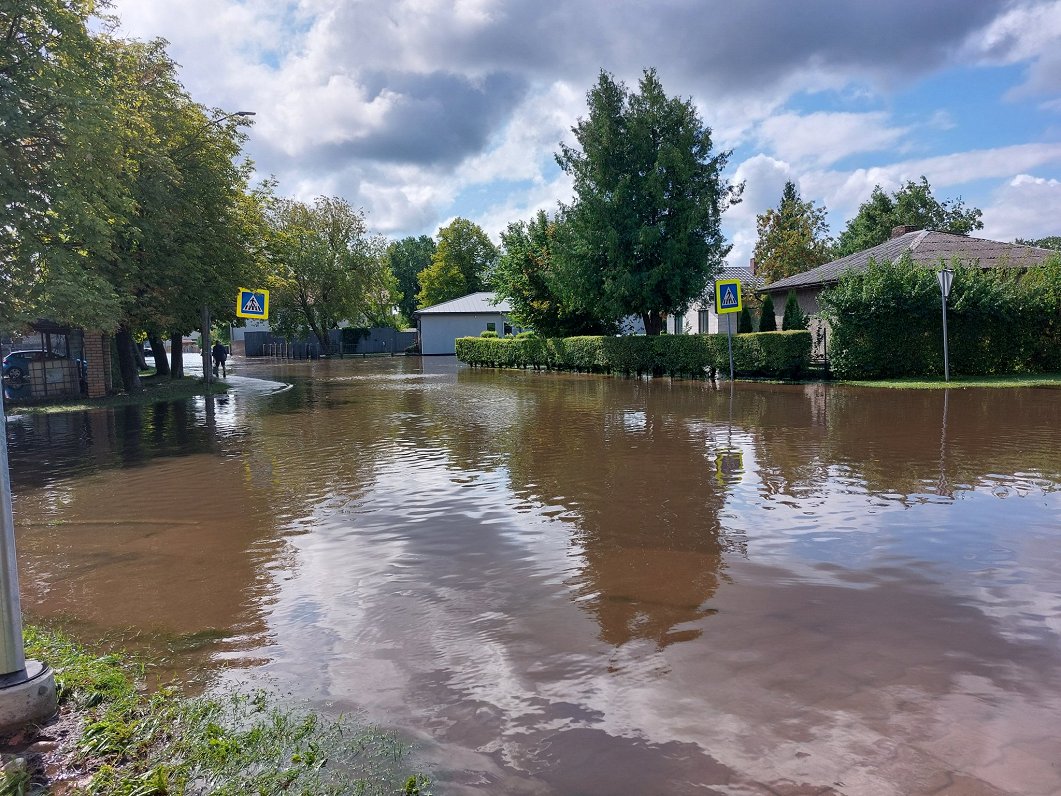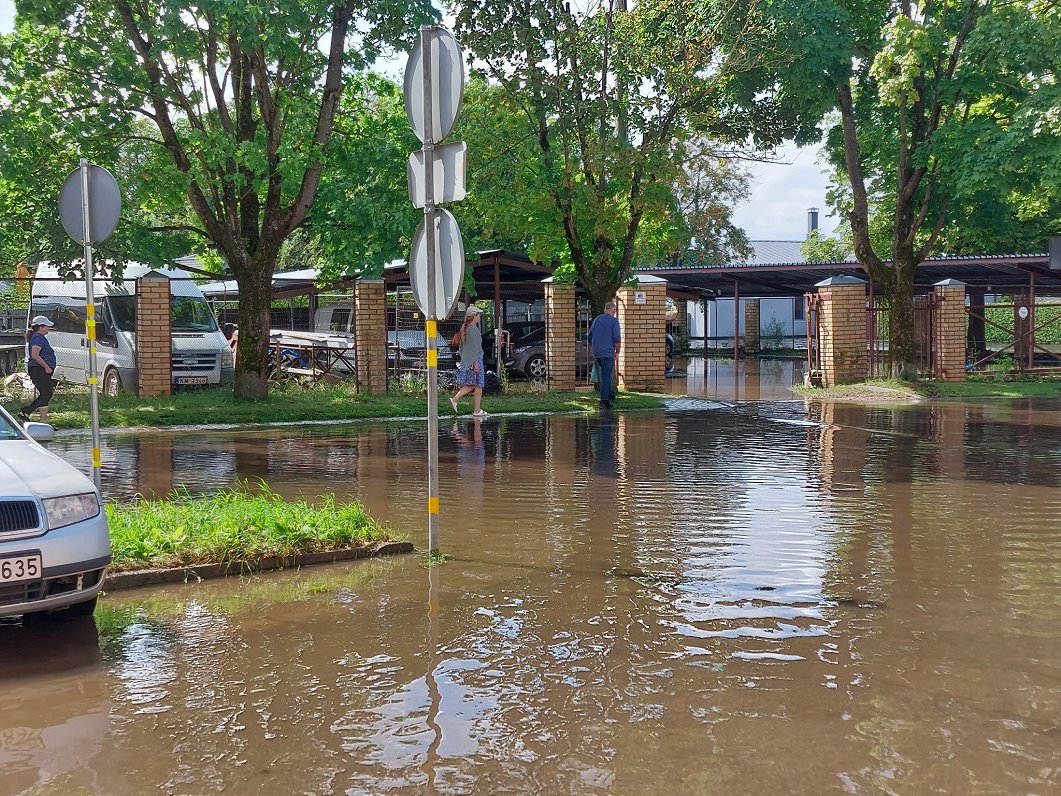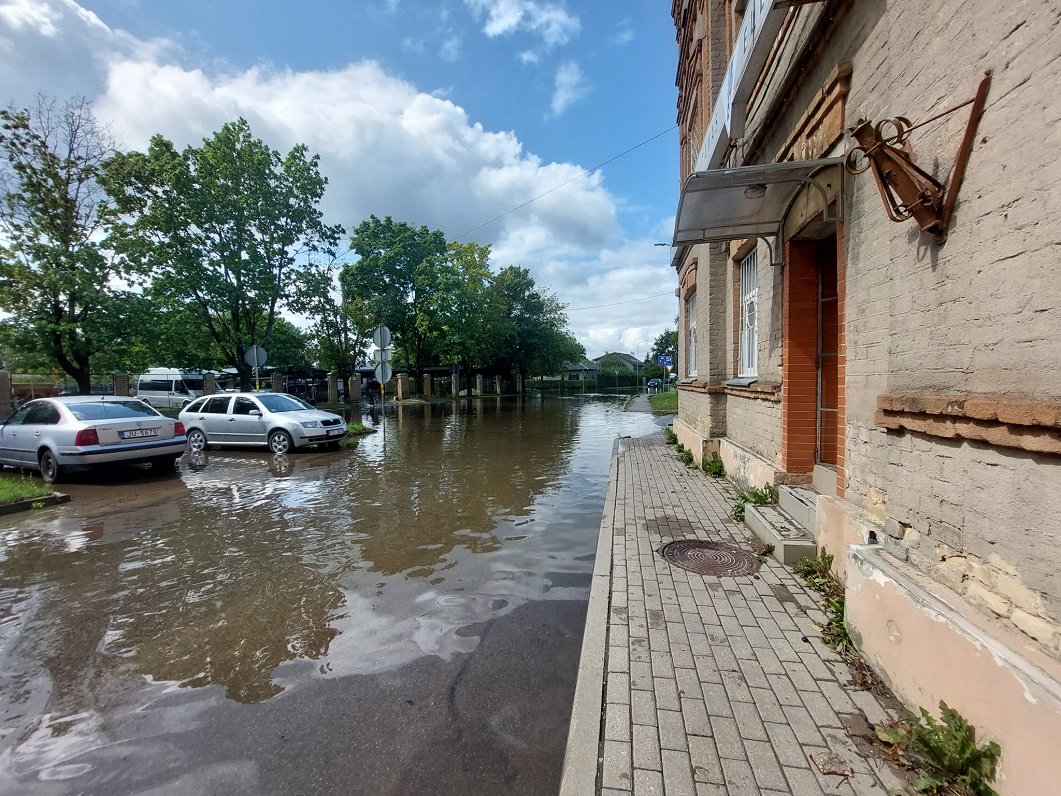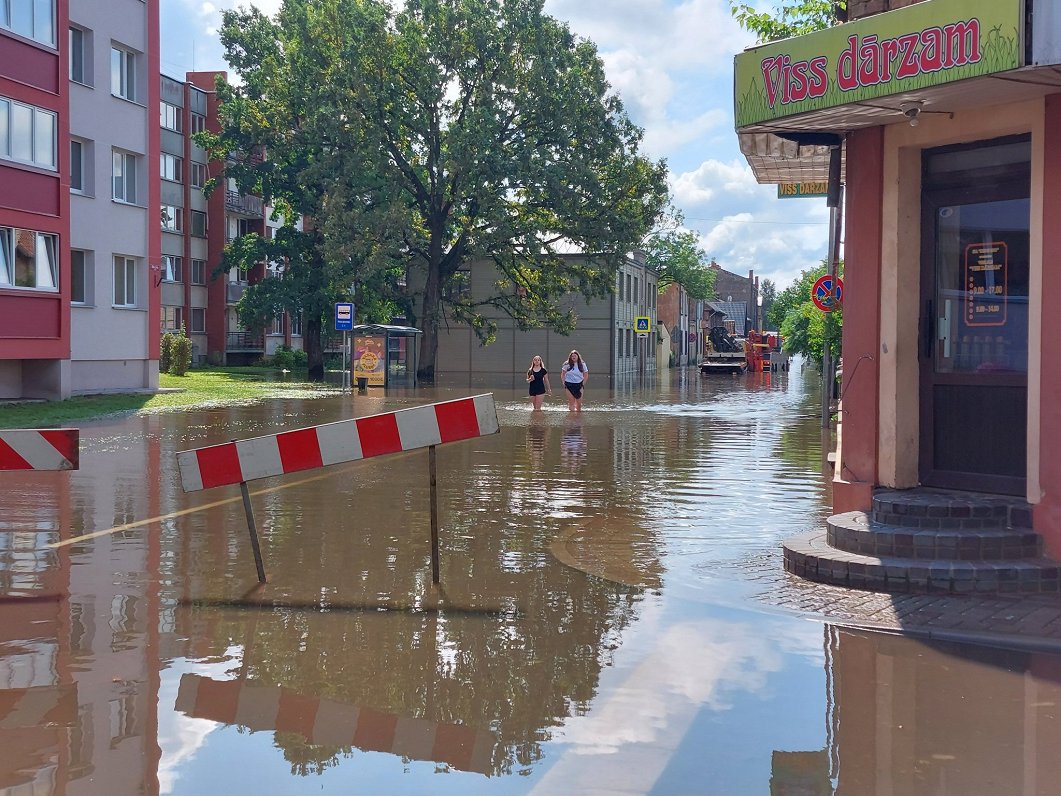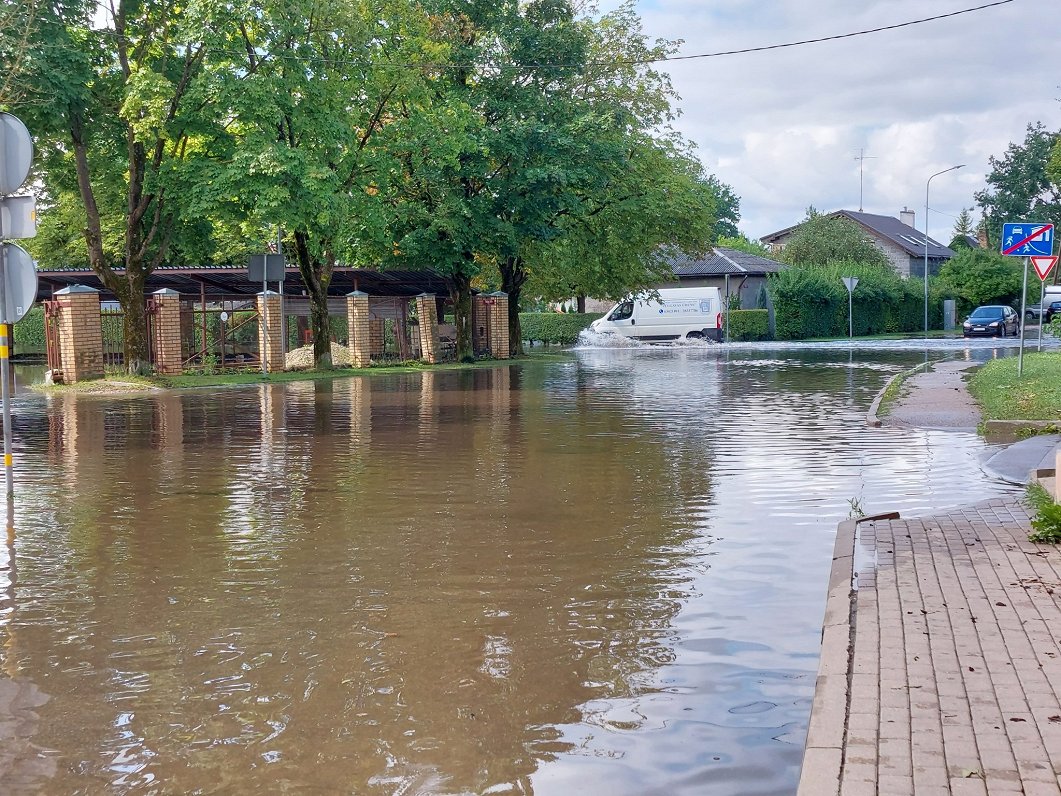Some streets in Jelgava have already been renamed rivers by locals. Some say it's like Venice, others say it's like being on a raft at sea. The municipality explained that everything possible is being done and water pumping works are going on continuously.
Meanwhile, some residents and children swim without worrying about the quality of the water.
The Health Inspectorate and the State Environmental Service will check water samples in Jelgava, Rīga, and Jurmala. However, the forecasts are not positive.
Elmārs Jasinskis, Head of the Operational Coordination Centre of the State Environmental Service, said: "The sewerage system consists of two parts. One is the storm water sewer and the other is fecal sewer. Historically, this fecal sewer, right here in the historic center of Riga, the city center, there are many places connected to the fecal sewer. The treatment plants are not designed for such loads, so they open the emergency outlets."
Similarly, everything that ends up on riverbanks ends up in the river, including animal feces and fertilizers from the fields, for example. That's why swimming is temporarily banned at beaches in Jelgava, Rīga, and Jūrmala. And swimming in city streets carries all the same risks, if not more.
Elita Baklāne-Ansberga, former head of the Environmental Service, has pointed out that the water in flooded streets contains oil and other chemical contaminants.
Normunds Kadiķis, head of the Environmental Health Division of the Health Inspectorate, noted, "If there are pathogenic viruses and bacteria in this feces, in this pollution, then it will certainly be various diseases of the intestinal tract, the simplest common dysentery, stomach upset, increased temperature, diarrhea, vomiting."
When it will be possible to swim again in the bathing areas of Jelgava, Rīga, and Jūrmala depends on the currents. It can take at least a few days to a week for the water to drain. Pollution will flow faster into rivers but could last longer in the Gulf of Riga.
